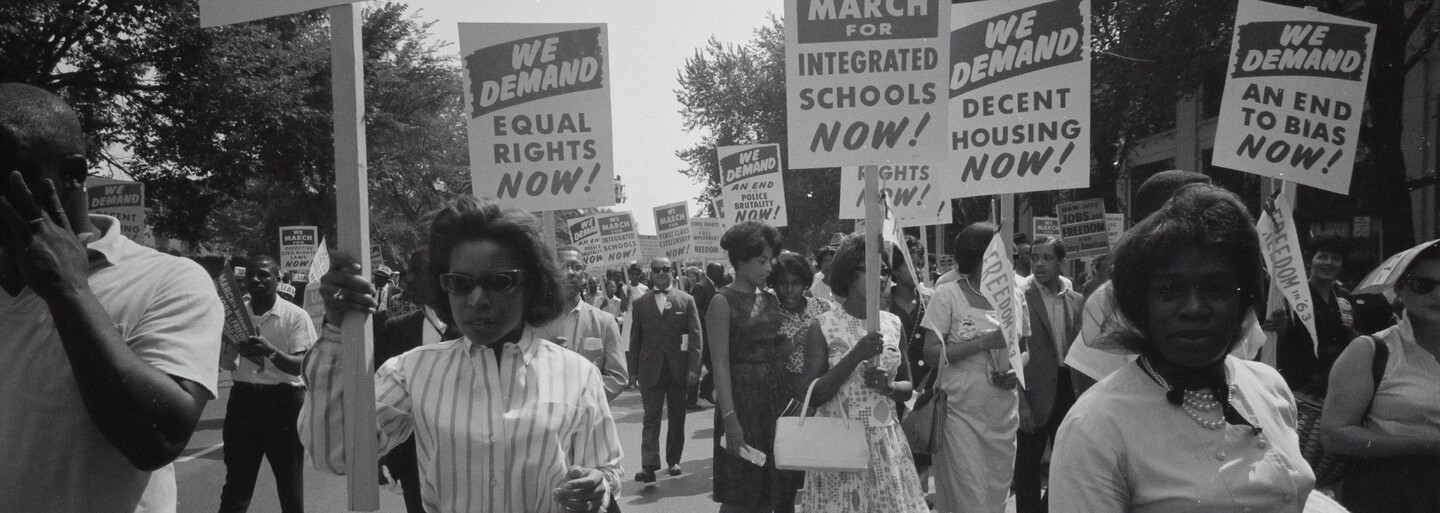 Ozempic can cause vision loss. A new study has shown a link between the drug and eye problems
Ozempic can cause vision loss. A new study has shown a link between the drug and eye problems
Ozempic can cause vision loss. A new study has shown a link between the drug and eye problems
Ozempic can cause vision loss. A new study has shown a link between the drug and eye problems
Dehumanized In The Name Of Science. Modern Gynecology Was Born From The Pain Of Enslaved Women
According to historians and available sources, modern gynecology is based on racist and unethical foundations. They are often associated with exploitation, colonialism and suffering.
If problems persis, please contact administrator.

Although the invention of contraception was a certain victory for the women's movement in the 1960s, only privileged women benefited from it. Non-white women were exploited through non-consensual participation in experimental (and often highly questionable, cruel and painful) treatment. They had their own bodies confiscated in the name of science.
It was marginalized, poor and enslaved women who made gynecology where it is today.
"Modern gynecology in the southern US progressed relatively quickly. And doctors, many of them slaveholders, had power over the bodies of black people, especially black women, to experiment on, examine and, in their words, 'correct' or 'cure' their diseases," award-winning historian Deirdre Cooper Owens told the Berkeley News and Professor of the History of Medicine at the University of Nebraska.
Doctors, she said, had created certain "racial fictions" that thought of black women as hypersexual, lustful beings who could not feel pain. These fictions helped them justify the often cruel experiments they subsequently carried out on them.
Anarcha, Betsy and Lucy, or the Mothers of Modern Gynecology
One such physician was James Marion Sims, controversially referred to as the "Father of American Gynecology." Sims performed non-consensual gynecological procedures on enslaved women so he could then treat white women from wealthy families.
Three of them are known in particular - Anarcha, Betsy and Lucy, who lived and worked on plantations in Alabama in the 1840s. All three women developed postpartum complications that caused them to lose bladder and bowel control. Slaveholders were frustrated by their condition—not because they cared about them, but because of their inability to perform hard work. They therefore sought out Dr. Sims and "entrusted" the women to his care.
The first to undergo the brutal "treatment" was roughly eighteen-year-old Lucy. She was brought naked into the hall, where several other doctors looked on impassively. She was then strapped to a table to prevent uncontrollable movements. Based on the false notion that black women do not perceive pain, Lucy was not given anesthesia. She was thus conscious throughout the (eventually) unsuccessful operation. She then spent three long months in recovery.
Betsy and Anarcha, who were also pregnant during the first operation, received the same brutal treatment. Again without the desired result. However, Sims was not going to abandon his unethical experiments. The women had to assist him during operations and learned how to care for each other during recovery. Anarchy, Betsy and Lucy therefore eventually became qualified doctors in their own right. Only one of them, Anarch, was cured after 29 unsuccessful operations.
Based on the stories of Lucy, Betsy, Anarchy and many others who involuntarily pushed for a shift in gynecological care, The Mothers of Gynecology movement was born in the United States.
It aims to honor their memory by referring to them as the true "mothers of modern gynaecology", thereby dispelling illusions about Sims' merits. In March 2021, artist Michelle Browder in Los Angeles invited locals to bring in unwanted metal objects that she could melt down to create a monument to these "mothers" in Alabama. However, it will only be erected after the Sims monument has been erected and subsequently removed.
Contraception as a symbol of feminism? Only the white one
Hormonal contraception also carries a racist past. For women, it did mean gaining power over their reproductive rights to a certain extent, but at the same time it threw the imaginary rope of eugenics – i.e. the control of who exactly would be "suitable" enough to start a family. Controls so that the "better" American nation is not replaced by any other, i.e., "worse." This ideology resulted, for example, in mandatory sterilization laws, which were allegedly approved by the prominent promoter of contraception, Margaret Sanger.
It was Sanger who was involved in making contraception available to black women, for example through her clinic in Harlem. However, historians still argue about her motives. It is not certain whether she really wanted to help the black community or was instead an advocate of controlling its population. In her case, however, rather than explicit eugenics, it was a belief that birth control could help eradicate extreme poverty, mental illness, and physical disability.
In the 1950s, American scientists John Rock and Gregory Pincus came up with oral contraceptives in pill form. They thus achieved a revolutionary success that ranked right after the discovery of penicillin. However, the Food and Drug Administration (FDA) would not approve it without extensive human testing.
Pincus identified the island of Puerto Rico as the "ideal setting" for his unethical human experiments, which was one of the most densely populated areas in the world, and officials there promoted birth control in an effort to alleviate the effects of enormous poverty. Also for that reason, there were a total of 67 clinics on the island that provided women with existing methods of contraception.
Pincus believed that if he could prove that poor and uneducated Puerto Rican women could use the birth control pill regularly, it could be successfully used by women around the world. The scientist located his first clinic in the Rio Pedras housing estate, and at the same time had the worst slum on the island of El Fangito razed to the ground and replaced by polished buildings to house people who wanted a better standard of living.
The pill was a welcome alternative for local women (who until then could only rely on sterilization or abortion) and therefore applied for it in large numbers. They only had to be in good health, under the age of 40 and have at least two children of their own.
However, it was kept from them that this was a clinical trial, the pill was only experimental and therefore there was a risk of dangerous side effects. However, serious and, in many cases, permanent consequences (including death) appeared almost immediately in many women. However, Pincus didn't think much of it, and the first contraceptive pill Enovid still went on the market.
Pincus and his team were later accused of exploiting poor women.
The contraceptive injection Depo Provera was also tested on black women without informed consent. According to studies, it was specifically promoted in immigrant communities, especially among women of Asian origin. According to an article by Dr. Annabel Sowemimo, in 1979, this very injection was given to a fourteen-year-old black girl while she was under general anesthesia for an unrelated procedure. The doctor subsequently justified his action by saying that he considered it his moral duty as a citizen of his country.
"When the women's movement demanded free, safe, and accessible birth control for all women, we had to remind them that for black women, that often meant being used as guinea pigs," Vitals by Daye quotes Heart of the Race author Beverly Bryan , Stella Dadzie and Suzanne Scafe, which looked at the lived experiences of black women in post-World War II Great Britain.
Tuskegee Studies
Of course, exploitation in the name of science was not limited to women. Between 1932 and 1972, the so-called "Tuskegee Syphilis Study" took place in Alabama, which investigated the natural course of untreated syphilis. It was originally attended by 600 black men - 399 of them with syphilis, the rest who did not suffer from the disease. It all took place without informed consent, with the researchers only telling the men that they were being treated for "bad blood" (a term used to describe a combination of several diseases, including syphilis, anemia and fatigue). In exchange for their participation in the study, they were provided with free medical examination, food and burial insurance.
The study was initially supposed to monitor the development of the disease for six months, and then provide patients with affordable health care. However, the research soon lost funding and no treatment was available to patients.
Subsequently, in 1942, penicillin began to be used as a standard for the treatment of syphilis, which, of course, was kept from the study participants. 128 men died of syphilis (or related complications) during the unethical experiment.
A similar experiment also took place at the end of the 1940s in Guatemala. Doctors here infected soldiers, sex workers, prisoners and psychiatric hospital patients with syphilis and other sexually transmitted diseases without their informed consent. At least 83 deaths resulted. In 1953, these unethical practices were followed up by a similar study in which children also participated, especially those from orphanages and poor rural families.
Today we would call these and hundreds of other unethical experiments crimes against humanity. The enslaved women on whose pain today's modern gynecology is based were mutilated and dehumanized. At the same time, participation in clinical trials was often the only option for people from poor countries to access medical care.
Unethical treatment caused, among other things, distrust in the health sector and public institutions, which prevails to this day. As a result, African Americans are less likely than whites to participate in federally funded research, according to a study published on the NCBI website.
If problems persis, please contact administrator.












